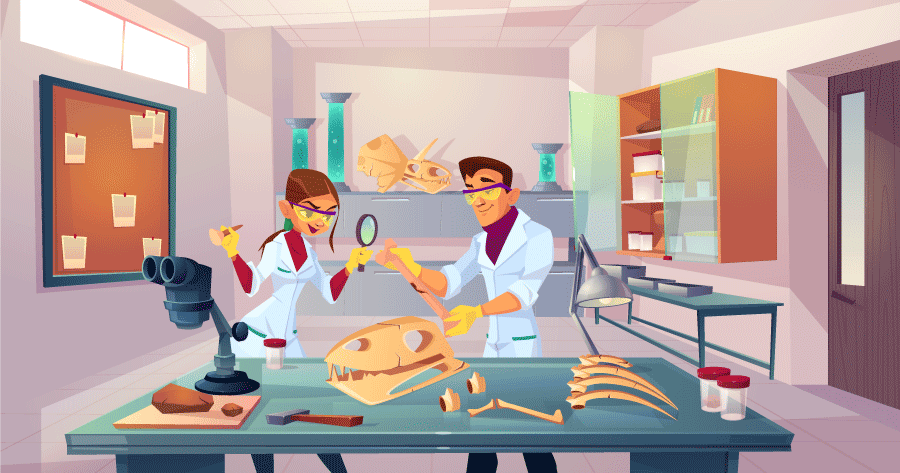
Interested in a career in paleontology? Paleontology is the study of past life on earth, their origin and their extinction, as seen through fossil records. There are many branches in the study of paleontology, such as vertebrate paleontology or the study of fossils of animals with backbones, paleobotany or the study of fossils of plants, and paleoecology, the study of past ecosystems, their origins and extinction.
A career in paleontology is one of the most interesting careers one can have in the sciences. It can take you all over the world, facilitate new discoveries about buried animals and flora, and can open up a new understanding of worlds that were previously not known. Aside from being an interesting professional occupation, the path towards a professional degree as a paleontologist or fossil hunter can also be very diverse.
University Courses
Undergraduate courses that focus on biology or geology are ideal starting points if you want a career in paleontology. It’s important that you have a strong science education from school and have maintained an interest in the sciences. You will be studying science at an advanced level and most of your classmates will be scientifically literate.
Students commonly opt for a double major for full undergraduate training in biology and geology, giving you careers options in biology and other fields. Preparatory undergraduate programs may also require exposure to liberal arts courses especially languages (French, Russian, German, Latin) as well as a full year focusing on the hard sciences like chemistry, physics and calculus.
University courses that are recommended for this career include evolutionary biology, genetics, mineralogy, invertebrate paleontology, invertebrate zoology, ecology, among others. Professors may recommend an introduction to statistical analysis since this is essential in modern paleontology.
Graduate School
Graduate school is necessary for a professional career in paleontology. If you feel you’re ready to make the challenging transition to grad school, choose schools that have strong paleontology programs that are taught by paleontologists that are active in research and publishing. Stumped as to what these schools are? Look through various paleontology journals like Palaios, Geology, Journal of Paleontology to see who their authors are and where they teach.
What if I just want to learn for fun?
There are various free online courses designed to introduce weekend hobbyists to the world of paleontology and dinosaurs. Platforms like Coursera, Classcentral and the Museum of Natural History offer free online courses that range from simple presentations to more detailed programs designed to supplement actual classes. Doing online classes isn’t always easy, so follow these excellent study tips from Lerna Courses to help you get through.
For example, the University of Alberta offers multiple online courses on paleontology, including an online course on ancient marine reptiles, theropod dinosaurs, and the origin of birds. Leiden University offers “Evolution Today”, an introduction to evolution that takes just two hours to complete. The Museum of Natural History also offers “Evolution: A Course for Educators” that introduces learners to evolutionary relationships, population and artificial selection.
Cornell University is ranked among the top 20 universities in the world. It’s Online Learning Department offers high school courses such as “Paleontology, EAS 1109: Dinosaurs” and “ANTHR 1300 Human Evolution”.
Want to learn the basics of fossil hunting? You can also check out “Fossil Hunting 101” at fieldmuseum.org, showing how dinosaur digs are done.
All these courses and resources are 100% online and offer flexible deadlines, making them perfect for virtually any type of student, from the college student who wants a good foundation in paleontology to the hobbyist who just wants to learn more about evolution.
Whether you are a high school student exploring your options before going to university or someone who wants to study fossils after work or on the weekends, these online courses can help you get started.